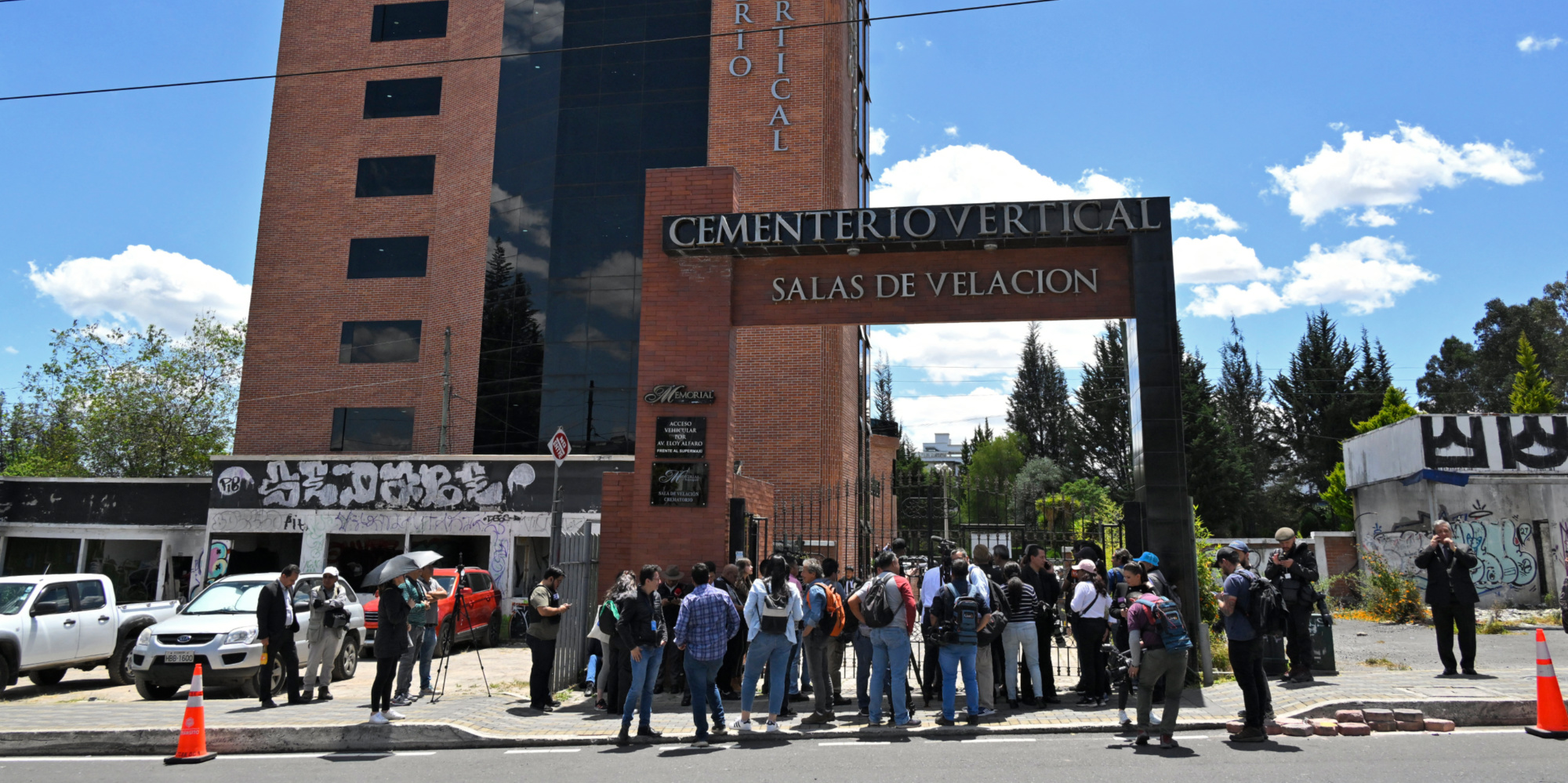A state of emergency was declared Thursday in Ecuador, the day after the shooting assassination of one of the main presidential candidates of August 20, Fernando Villavicencio, an act strongly condemned by the international community. Second in voting intentions, the former journalist by profession and fierce defender of corruption, was killed at the end of an electoral rally, as he left a sports hall in the north of the capital Quito. Aged 59, he was running for the presidency of his country for the first time.
At the rally site, posters of the centrist candidate are next to a banner that reads: “NARCOPOLITICS will pay. Fernando TQM (for Te Queremos Mucho, we love you very much) forever”. Bouquets of white roses are placed on the ground. “We are living in a horror movie, with machine guns that fired 30 or 40 bullets (…)”, testified to the press Galo Valencia, the candidate’s uncle. The main daily newspaper of the country, The Universesaid that Fernando Villavicencio had been killed “by three bullets in the head”.
The international community condemns his assassination
The international community strongly condemned his assassination, with Washington calling it a “heinous act of violence”, the European Union an “attack on democracy” and France a “barbaric act”. The UN High Commissioner for Human Rights Volker Türk denounced an “appalling murder”, seeing in the violence against political leaders “a serious threat to the electoral process and the ability of the people to express their democratic will “.
In order to guarantee the holding of the August 20 election, President Guillermo Lasso has declared a state of emergency in the country for 60 days. “The armed forces are currently mobilized throughout the national territory to guarantee the security of citizens, the tranquility of the country and free and democratic elections,” he said in a speech broadcast on YouTube. He also decreed three days of national mourning “to honor the memory of a patriot”.
Death threats the week before the assassination
The week before his death, the presidential candidate, who was under police protection, had twice reported threats against him and his team. “Despite the new threats, we will continue to fight for the brave people of our #Ecuador,” he wrote on Twitter’s new name X last week. The attack also left “nine injured, including a candidate for the Assembly and two police officers”. One of the assailants was also shot dead by security. “Organized crime has gone very far,” denounced President Lasso on X, saying he was “indignant and shocked”. “I assure you that this crime will not go unpunished,” he promised.
In recent years, Ecuador, once an oasis of a country in South America, has faced a wave of violence linked to drug trafficking which, in the midst of the electoral process, has already led to the death of a mayor and a candidate for parliament. A video of a group of men dressed in black, hooded and armed with guns, claiming to be part of the Los Lobos gang and claiming responsibility for the crime without mentioning Villavicencio is circulating on the Internet. Its origin, however, could not be verified by AFP. Security experts believe it could be a tampering attempt.
maximum security prison
Fernando Villavicencio was one of the eight candidates in these early general elections caused by the dissolution of the Assembly in May by Guillermo Lasso. The date of the first round was maintained at August 20 by the National Electoral Council (CNE). He ranked second in voting intentions with around 13%, according to the latest polls from the Cedatos institute, behind lawyer Luisa Gonzalez (26.6%), close to former President Rafael Correa (2007-2017), that Fernando Villavicencio had sent to the dock.
Among other campaign proposals, the centrist candidate wanted the construction of a maximum security prison in the Amazon. Only days before being assassinated, he had denounced irregularities in public contracts.
One of his main feats of arms remains to have sent former President Correa to the dock thanks to one of his investigations. He revealed the existence of a vast network of corruption, bringing the former head of state and government officials to justice for having received bribes from men. business. Rafael Correa, a refugee in Belgium and whom Fernando Villavicencio nicknamed “the fugitive”, was sentenced in absentia to eight years in prison in this case.
